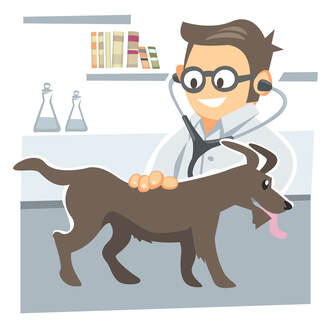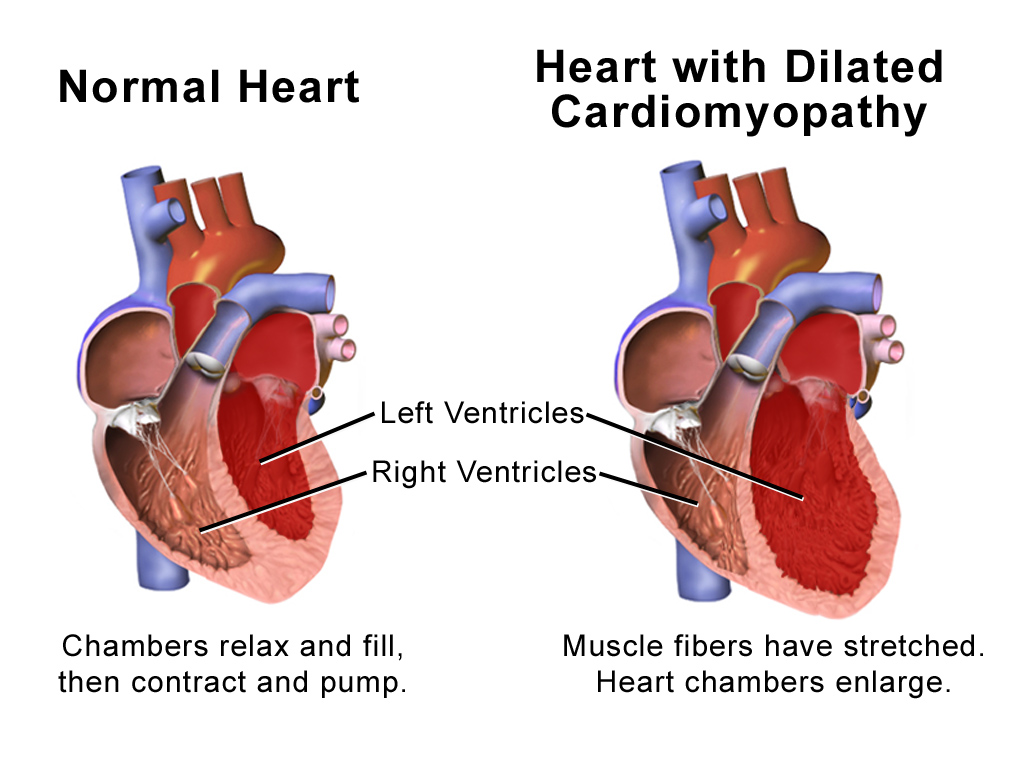To Free or Not to Free: The dilemma with grain-free foodPet food, specifically dog and cat food, has been a hot topic of research for its pertinence and complexity. Many owners want to give their pets the best care they deserve and this can be easily done through pet food, which is easy to understand on a basic level and is easy to administer for the owners. However, some foods may be harmful to our pets and could cause damaging diseases later in our pets' lives. One such controversial food that has been a hot topic of research recently has been grain-free food. Grain-free food is food that does not contain any grain or grain-based products, whereas grain-based food does contain grain or grain-based products, such as wheat, barley, and oats. Grain-free foods are varied in appearance and usually a main ingredient is used in substitute for the grain in a grain-based food. Some examples are duck, carrots, potatoes, peas, sweet potatoes, or even exotic meats such as kangaroo! Sometimes exotic ingredients in foods are referred to as boutique or exotic diets because their main ingredients are less common. These ingredients are less studied and not much is known about them from a nutritional standpoint. Homemade or raw food can also be considered to be in the grain-free category. Oftentimes owners that make their pets' food do not consider putting in grains of any sort, and the raw diet consists solely of raw meats. These may also have the potential of causing debilitating diseases later on in life, and the connection lies in whether there are grains or grain-based products in the food or not. Grain-free foods may be potentially linked to an increase of heart disease known as Dilated Cardiomyopathy (DCM) which causes a weakening of the heart. This link was first suggested when veterinary cardiologists were noticing uncommon breeds and atypical cases of DCM presenting to the hospital more frequently. DCM begins when the heart begins to expand, or dilate, weakening the muscle wall as it does. This also causes the chamber within the heart to expand outwards and become larger, which causes the heart to have to work harder to pump the same amount of blood through the heart due to the larger chambers within the heart. This can lead to serious complications such as heart arrhythmia, congestive heart failure, or sudden death. The severity of this disease has prompted a closer look at how we can diagnose and treat this disease more efficiently. How could grain-free foods be linked to a complicated and problematic disease such as DCM? Some researchers are discussing potential hypotheses such as toxic components found in the grain-free foods that may not be present in the grain-based foods or nutrient deficiency that may be grain-free specific. The toxic component has not been found if one exists, however we have examples in the past of dog foods containing dangerous chemicals such as the melamine-cyanurate complex that was popular in pet foods and infant formula until the late 2000's. These examples lay the groundwork for potential investigations into the possibility that a cardiotoxic chemical found in grain-free foods may be harmful when consumed. Others surmise that a nutrient deficiency is the cause of DCM, and that there simply isn't the correct balance of nutrients in grain-free foods. In the past cats had a history of problems with DCM, until it was discovered that there was a deficiency of taurine in most cat foods. When taurine supplementation was added to the pets' diet, or the food itself had an increase in taurine, it was found to significantly reduce the amount of DCM cases in cats. Could this be the same case for grain-free foods because of a deficiency in taurine or some other essential nutrient? More research is needed, but we do know that age plays a role in the caseload of DCM - older pets are more prone to DCM because they are exposed to a diet for a longer period of time. Those that remain on grain-free diets for extended periods of time could be more vulnerable if the food was causing issues in the pets' health. We also know that different flavors of food change the bioavailability of nutrients in the food. Lamb and chicken flavored foods must be manufactured separate from each other if the food is to remain nutritionally sufficient, as lamb has more protein content than chicken. With this in mind, it may be that grain-free foods potentially are missing an essential nutrient or they have a mixture of nutrients that are reducing the nutrient bioavailability of the food. Either way, research into this field could bring promising leads into potential links between grain-free foods and DCM.  Regardless of the cause behind the potential link between grain-free foods and DCM, there are some barriers to getting the information out to our owners. Correct and scientifically sound numbers are difficult to come up with due to reporting bias. If there is a large population of golden retrievers, and only a few German shepherds and other breeds that are also reported, then the large amount of golden retriever cases can be partially explained by the large sample size. Research must be done diligently with respect to this bias in order to gather the correct information pertinent to the situation. Another barrier is the pet food marketing industry. Marketing has far outpaced research, and because of this, there are many foods that are marketed as safe and healthy with no scientific research or study to back up the claim. This is mostly seen in exotic ingredients, which do not have the same research and knowledge that other common ingredients have. Other foods may be marketing their nutritional value, while also lacking the capability to follow up on promises of healthy food due to facility structures and lack of proper monitoring. In both cases, greed outpaces research, and the recipient of this carelessness is our pets. It is important to ensure that the food you are feeding your pet is nutritionally sound and healthy. Speak to your veterinarian with any questions about any foods you are feeding your pet, as they can help point you in the right direction if you are feeling lost with all the pet foods and brands out there. There are lots of food brands, and it is important to do your research when you buy pet food.  It is clear that food choice and awareness about grain-free options are important to consider when feeding your pet. It should be noted that although grain-free food may be linked to an increase in DCM, it is not a guarantee that your pet will get DCM from grain-free food, only that it increases the likelihood of DCM diagnosis. In some cases, pets are allergic to grains, and in this situation it is up to the owner to determine what would be best for the pet. It is recommended that pet owners work with their veterinarian to find the correct solution for their pet. There are options to work around food allergies, such as finding grains your pet is tolerant to, or even getting allergy testing to discover what the allergy is comprised of then giving food that does not contain that specific grain. Regardless of the option you go with, avoiding grain-free food would be beneficial for your pets' health if at all possible. There may be some cases where grain-free food is a must for your pet, in which case it is important to continue to monitor your pet and ensure that veterinary visits are frequent enough to keep your pet safe. Ask your veterinarian for what they would recommend if this is the case. Giving an accurate diet history will also be helpful for getting the best advice from your veterinarian. With an accurate and complete diet history including flavors and specific brands, your veterinarian will be able to notice patterns and give you advice on what to feed your pet. Different flavors have different nutritional requirements and this necessitates some research into what would be best for your pet, which is furthered by a good diet history. It may also be beneficial to give your pet taurine supplements if you decide to give your pet grain-free food, although this should be discussed with your veterinarian beforehand. Though this isn't proven science yet, this was critical to helping cats avoid DCM as a common disease, and it may be the same case for dogs on a boutique, exotic, or grain-free diet.  It should be noted that DCM caused by food could potentially be reversed partially by switching diet to a grain-based diet. It is never too late to consider the care you are giving your pet and switch if needed. Early signs of heart disease include, but are not limited to, weakness, shortness of breath, coughing, fainting, or lethargy. If you notice any of these signs in your pet, and your pet is on a grain-free diet, it would be beneficial to schedule an appointment with your veterinarian to determine what should be done, if anything, to treat these symptoms before they worsen. As pet owners we are the advocate for our family, and we need to be monitoring and checking up on our pets to ensure that they are healthy, and be their voice if they are not. Discussion with your vet should be honest and open, with a goal of approaching the best care possible for your pet. Only by discussion and knowledgeable research can we figure out what's best for our pets. Ultimately the well-being of our pets is the primary reason for care and veterinary recommendations. Compliance with these recommendations will help support your pet's health and allow you to save money on future expenses to the hospital by taking care of your pet now before medical problems arise. Keeping grain-free foods out of your pets' diet should be a helpful first step to keeping your pet as healthy as it can be. By avoiding grain-free foods, listening to your vet for any recommendations, and keeping a keen eye out for any new research being done on grain-free foods and a potential DCM link, we can become better pet owners and take better care of our pets.
9 Comments
|
Author:NOAH Staff Archives
April 2022
|

